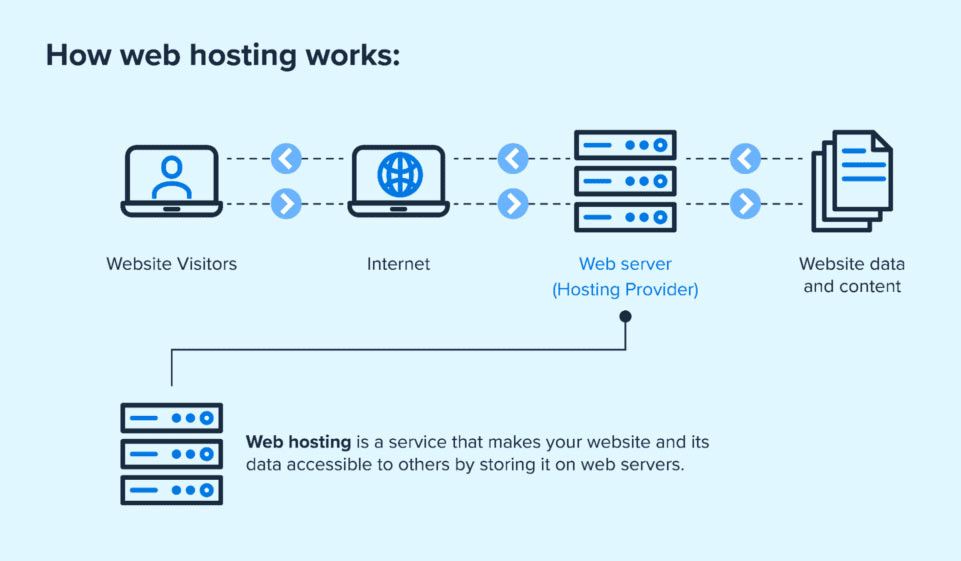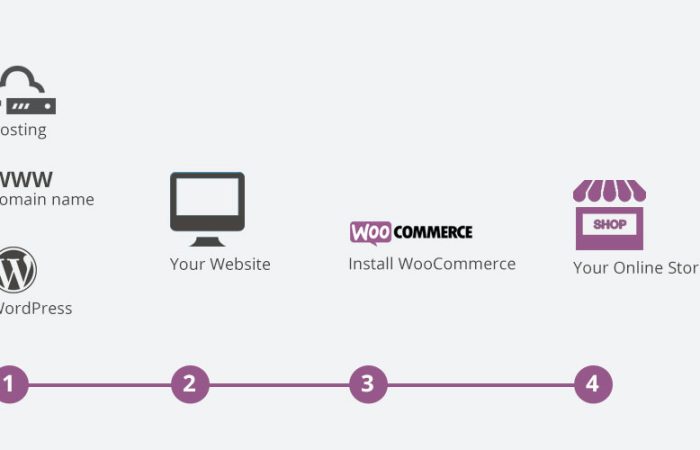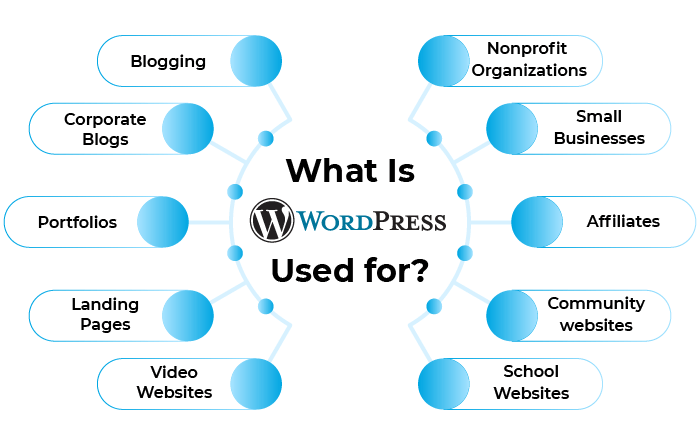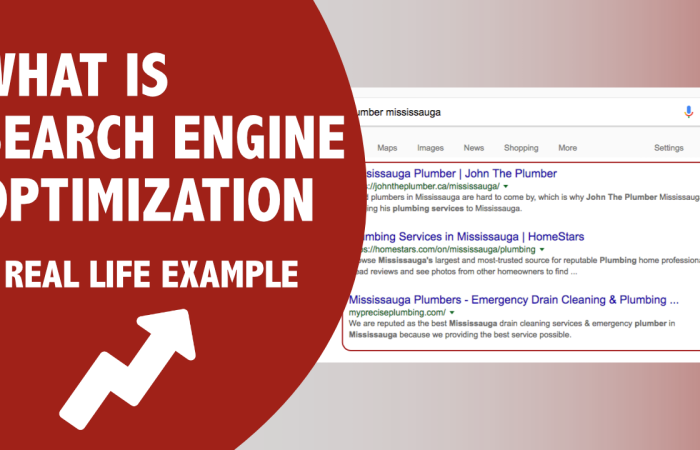If you've ever thought about selling products online, you've likely come across the term WooCommerce.…
What is Website Hosting?
In today’s digital age, having an online presence is more important than ever. Whether you are a small business owner, a blogger, or someone looking to showcase their portfolio, having a website is essential. But before you can create a website, you need to understand the basics of how it works, including the fundamental question: What is website hosting?
Understanding the ins and outs of website hosting is crucial for anyone looking to build and maintain a successful website. In this blog post, we will explore what website hosting is, why it’s important, the different types of hosting services available, how to choose the right hosting provider, and some common misconceptions about hosting. By the end of this article, you’ll have a thorough understanding of website hosting and how to get started.
What is Website Hosting?
To answer the question, what is website hosting?, let’s start with the basics. Website hosting is a service that allows individuals and organizations to make their websites accessible on the internet. When you create a website, it consists of various files, images, videos, and other content that need to be stored somewhere. This is where web hosting comes in.
Web hosting providers rent out space on their servers (which are powerful computers) where these files are stored. When someone types in your website’s domain name (like www.example.com) into their browser, the browser requests the files from the server, and your website is displayed on the visitor’s screen.
Without web hosting, your website would not be visible to the outside world. In essence, web hosting is the foundation that keeps your website running smoothly and ensures it is accessible to anyone who wants to visit it.
How Does Website Hosting Work?
To further understand what is website hosting?, it’s important to know how it works. Here’s a breakdown of the process:
- Domain Name Registration: Before you can host a website, you need a domain name, which is your website’s address on the internet. Think of it as your home address, but for your website. Domain names are registered with domain registrars, and they point to your web hosting provider’s servers.
- Choosing a Hosting Provider: Once you have a domain name, the next step is to choose a hosting provider. This is a company that offers server space and resources to store your website’s files and make them accessible online.
- Server Space and Resources: The hosting provider allocates a specific amount of server space and resources (such as bandwidth and memory) for your website. The amount of space and resources depends on the hosting plan you choose.
- Uploading Website Files: After you’ve set up your hosting account, you can start uploading your website’s files to the server. This can be done using various tools, such as FTP (File Transfer Protocol) clients or the hosting provider’s file manager.
- Website Accessibility: Once your files are uploaded and the domain name is properly configured, your website becomes accessible to anyone on the internet. When someone enters your domain name into their browser, the browser connects to your hosting provider’s server and retrieves the necessary files to display your website.
Why Is Website Hosting Important?
Now that we have a basic understanding of what is website hosting?, let’s explore why it is so important.
- Website Availability and Performance: A reliable web hosting service ensures that your website is always available and performs well. This means fast loading times, minimal downtime, and a smooth user experience. A slow or frequently down website can frustrate visitors and lead to lost traffic and revenue.
- Security: Hosting providers offer various security measures to protect your website from cyber threats, such as malware, hacking attempts, and DDoS attacks. A good hosting provider will have security features like firewalls, SSL certificates, regular backups, and malware scanning to keep your website secure.
- Scalability: As your website grows, you may need more resources, such as additional storage space or bandwidth. Hosting providers offer scalable solutions that allow you to upgrade your hosting plan as needed, ensuring your website can handle increased traffic and resource demands.
- Technical Support: Quality hosting providers offer technical support to help you with any issues or questions related to your website. This support can be invaluable, especially for those who are not tech-savvy or do not have an in-house IT team.
- SEO Benefits: Search engines like Google take website performance and uptime into consideration when ranking websites. A reliable hosting service can improve your website’s performance and help boost your SEO efforts, making it easier for potential customers to find you online.
Types of Website Hosting
To fully answer what is website hosting?, it’s essential to understand the different types of hosting services available. Each type has its own advantages and disadvantages, depending on your specific needs and budget.
- Shared Hosting: This is the most common and affordable type of hosting, especially for beginners and small websites. In shared hosting, multiple websites share the same server and its resources, such as CPU, RAM, and bandwidth. While this makes it cost-effective, it also means that if one website on the server experiences a spike in traffic or uses too many resources, it can affect the performance of other websites on the same server.
- VPS Hosting (Virtual Private Server): VPS hosting offers more resources and greater control than shared hosting. In VPS hosting, a physical server is divided into multiple virtual servers, each with its own dedicated resources. This provides better performance and security than shared hosting, making it suitable for medium-sized businesses or websites with higher traffic.
- Dedicated Hosting: With dedicated hosting, you have an entire server dedicated solely to your website. This means you have full control over the server, including its resources, operating system, and software. Dedicated hosting offers the highest level of performance, security, and customization but comes at a higher cost. It’s ideal for large websites, e-commerce platforms, or businesses with high traffic and resource demands.
- Cloud Hosting: Cloud hosting is a relatively new type of hosting that uses a network of interconnected servers to host websites. This allows for greater flexibility and scalability, as resources can be easily adjusted based on demand. Cloud hosting offers high reliability, as your website is not reliant on a single server and can easily switch to another server in the network if one fails. It’s suitable for websites that experience fluctuating traffic or need a high level of redundancy and uptime.
- Managed Hosting: Managed hosting is a service where the hosting provider takes care of all the technical aspects of hosting, such as server maintenance, updates, security, and backups. This allows you to focus on running your website without worrying about the technical details. Managed hosting can be offered with various types of hosting (shared, VPS, dedicated, cloud) and is ideal for those who prefer a hands-off approach or lack technical expertise.
- WordPress Hosting: This type of hosting is specifically optimized for WordPress websites, offering features like one-click WordPress installation, automatic updates, and enhanced security. WordPress hosting can be shared, VPS, or managed, depending on the provider. It’s ideal for users who are specifically using WordPress as their content management system (CMS).
Choosing the Right Hosting Provider
Now that we’ve covered what is website hosting? and the different types available, how do you choose the right hosting provider? Here are some factors to consider:
- Performance and Reliability: Look for a hosting provider that guarantees high uptime (at least 99.9%) and fast loading speeds. Check reviews and ask for recommendations to ensure the provider has a good track record for performance and reliability.
- Security Features: Choose a hosting provider that offers robust security measures, such as SSL certificates, regular backups, malware scanning, and DDoS protection. Security is crucial for protecting your website and customer data.
- Customer Support: Quality customer support is essential, especially if you’re not tech-savvy. Look for a provider that offers 24/7 support via multiple channels, such as phone, chat, and email.
- Scalability: As your website grows, you may need more resources. Choose a hosting provider that offers scalable solutions, allowing you to easily upgrade your hosting plan or resources as needed.
- Pricing and Value for Money: While price should not be the only factor, it’s important to choose a hosting provider that offers good value for money. Compare prices and features of different providers to find a plan that fits your budget and needs.
- User-Friendly Control Panel: A user-friendly control panel, such as cPanel or Plesk, makes managing your website easier. Look for a hosting provider that offers an intuitive control panel with all the necessary tools and features.
- Reputation and Reviews: Research the hosting provider’s reputation and read customer reviews to get a sense of their reliability, performance, and customer service. Look for providers with positive feedback and a strong reputation in the industry.
Common Misconceptions About Website Hosting
As we continue to explore what is website hosting?, it’s important to address some common misconceptions that people may have about website hosting:
- All Hosting Providers Are the Same: Not all hosting providers offer the same level of service, performance, and security. It’s important to do your research and choose a provider that meets your specific needs and budget.
- Cheap Hosting Is Always Better: While cost is an important factor, cheap hosting can often come with limitations, such as slow loading speeds, frequent downtime, and poor customer support. It’s important to consider the overall value for money and choose a hosting provider that offers a balance of affordability and quality.
- You Only Need Hosting for Large Websites: Even small websites and personal blogs need hosting to be accessible on the internet. Hosting is essential for any website, regardless of itssize or purpose. It provides the foundation for your website to be visible and accessible to users around the world.
- Once Set Up, Hosting Doesn’t Need Attention: Some people believe that after setting up their website with a hosting provider, no further attention is needed. However, regular monitoring and maintenance are crucial to ensure optimal performance and security. This includes updating software, monitoring traffic, and ensuring backups are regularly taken.
- Free Hosting is a Good Option: While free hosting might seem like a good deal, it often comes with significant downsides such as limited resources, lack of customer support, unwanted ads on your website, and poor performance. For a professional and reliable online presence, investing in a reputable paid hosting service is recommended.
Conclusion
Understanding what is website hosting? is essential for anyone looking to create or manage a website. It is the backbone that keeps your website accessible to users and plays a critical role in performance, security, and scalability. Whether you’re just starting out or looking to optimize your existing website, choosing the right hosting provider is a decision that can significantly impact your online success.
By considering the types of hosting available and evaluating providers based on performance, security, support, scalability, and value, you can make an informed decision that meets your needs and budget. Remember, website hosting is not just about storing files; it’s about providing a stable, secure, and efficient foundation for your online presence. So, the next time you hear someone ask, “What is website hosting?” you’ll not only know the answer but understand why it matters so much in today’s digital landscape.




